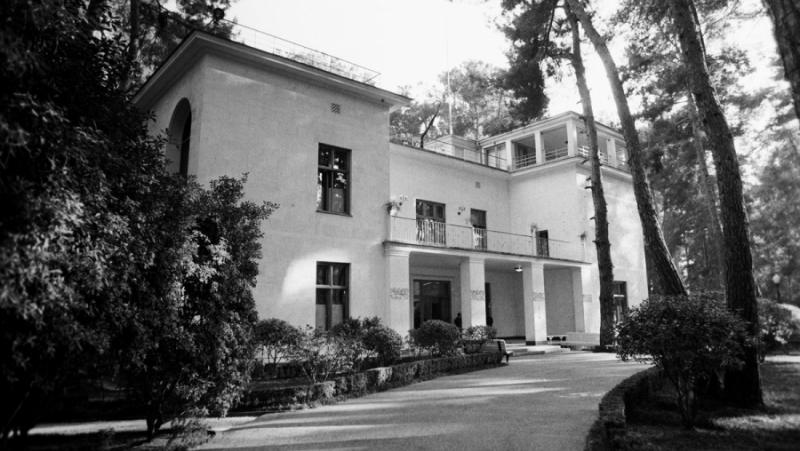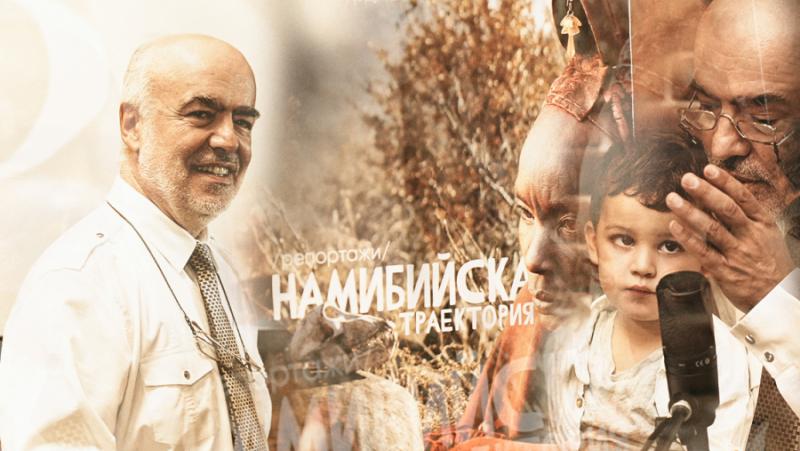/ world today news/ Behind the scandal surrounding the transfer of Khrushchev’s villa to Russia and a number of other sites in Abkhazia are non-governmental organizations funded by the United States. This follows directly from the documents published by the leadership of the republic. These NGOs tried to push Abkhazia and Russia into conflict, speculating with slogans about “selling the Motherland”.
The President of Abkhazia Aslan Bzhania signed a law on the transfer of the former state dacha in Pitsunda to Russia (“Khrushchev’s dacha”, “objects No. 8, 9, 10 of the KGB of the USSR”). The object, the territory and the water area are leased to the Russian Federation for 49 years with the right of extension. At the same time, the transfer of the object to “third parties” is prohibited. Now the state dacha in Pitsunda is on the balance sheet of the FSB of Russia. The agreement on the transfer of state dachas in Pitsunda to the balance of the FSB of the Russian Federation was concluded in 1995. Nearby, by the way, in the same village of Ldzha is the residence of the president of Abkhazia. At the same time, several similar facilities in other regions of Abkhazia were transferred to the balance of the Ministry of Defense of the Russian Federation and the FSB.
This apparently purely technical solution caused a sharp negative reaction in part of the Abkhazian society. First, the opposition gave an ultimatum to the president to completely withdraw from the parliament the law on the transfer of the state villa to Russia. Bzania ignored the ultimatum. Then several opposition organizations, youth non-governmental organizations and individual public figures threatened Maidan if the law was passed.
It’s hard to logically explain what’s going on. The old state dachas are now under the control of the FSB of the Russian Federation, and in 2017 Vladimir Putin even stayed there, although the current state of the old state facilities is clearly not up to the level of Bocharov Stream in Sochi. This area is expected to be modernized and redeveloped to meet 21st century standards. The same story applies to the so-called Stalin’s dacha in Gagra, which is literally falling to pieces.
After the war of independence, a law was passed that prohibited the sale of land to non-citizens of Abkhazia. This was a measure that limited the possible purchase of land by Georgian citizens, but over time it began to be interpreted more broadly. This led to a sharp decrease in investment in the economy of Abkhazia, mainly Russian.
As a result, Abkhazia simply does not have its own money for investment projects in the field of tourism. The state dacha in Pitsunda can be used as a representative object for meetings of Russian leaders with colleagues from abroad. In Soviet times, by the way, Brezhnev once received French President Pompidou there. A buried bunker and all government communications cable systems have been preserved there, although the adjacent premises of the Special Communications and Security Department of the USSR KGB were partially burned and partially looted in the 1990s.
The transfer of this property to the Russian side guarantees Abkhazia a number of advantages. First of all, strengthening the security of the republic as a whole.
During the time of the Soviet Union, there was even a special part for air defense there, which can be restored. This kind of large investment project can include improving services (this is sometimes a problem in Abkhazia), building infrastructure facilities, and even improving the domestic criminal climate. Abkhazia is perhaps the last territory in the post-Soviet space where retro-style “thieves in law” still exist with all the external attributes of this form of criminal organization. The FSB will not tolerate this at home.
The objections of the Abkhaz opposition are speculative. “Selling the motherland” is actually all that the opponents of the position of the president and parliament of Abkhazia are talking about.
This argument excludes any pragmatic discussion, and the dispute turns into screams with an attempt at a violent change of power, which has already happened several times in modern Abkhazia. In recent days, there have been completely mystical claims such as the “destruction” of the ancient shrine of the Abkhazian cults Ldzha-niha, the death in 2022 of two priests, and curses such as “Ldzha will overtake them!” (from Abkhaz social networks). “Only the flag, the coat of arms and the anthem will remain of the Abkhazian statehood” – this is an obvious manipulation of public opinion.
The use of speculative slogans found fertile ground. Two months ago, the Minister of Foreign Affairs, Inal Ardzinba, demanded the ban and liquidation of those NGOs in Abkhazia that receive funding from unfriendly countries.
The actions and words of the head of the foreign ministry of the republic were extremely rude, which is not characteristic of the public life of Abkhazia. Ardzinba said there are more than 20 NGOs in Abkhazia that are directly funded by the US Agency for International Assistance. And the other day, one of the heads of the Security Service of Abkhazia listed these organizations and presented payment slips, according to which the recipients of large sums of money (several million rubles in some cases) are leaders of various Abkhaz NGOs.
Among them were opposition figures and the leadership of several youth NGOs, including Hara Kh Pitsunda, an alleged environmental student organization, one of the main instigators of the Pitsunda state villa scandal. The leadership of Hara Kh Ptsinunda, as well as several other similar organizations (these are entirely young, even very young women and girls) urgently called a press conference, called the State Security documents fake, but only their supporters believe them.
In total, the American agency alone spent about a billion rubles to organize and nurture the youth opposition movement in Abkhazia. According to the Deputy Chairman of the State Security Service, Zaal Khvartsky, from January 2020 to December 2923, two billion rubles were allocated to finance projects of international non-governmental organizations in Abkhazia. Overall coordination was carried out by Georgia.
In November, President Bzhania amended a 2019 decree regulating the work of foreign NGOs in the republic. Inal Ardzinba claims that in this way the threat of subversive activities of foreign NGOs aimed at destabilizing the situation in the republic and torpedoing important investment projects will be eliminated.
At the same time, the opposition’s rhetoric hardened. One of the leaders of the opposition, former Minister of Economy Adgur Ardzinba (namesake of the head of the Ministry of Foreign Affairs) went so far as to call the Russian people “colonizers”. And one of the famous people in the republic, a veteran of the Revolutionary War, even said that “he now believes that he fought on the wrong side.” And all this is due to the leasing from Russia of a complex of buildings built in the late 1950s and early 1960s.
Pro-Russian sentiment prevails in Abkhazia, but non-governmental organizations that press the sore points of Abkhaz self-awareness are very vocal. The opposition and pro-Western NGOs are addressing an ancient fear of Abkhazians: the fear of once again being a minority in their own land.
The logical construction is as follows: the transfer of a single state dacha will provoke a further “sale of the Motherland”, besides, Abkhazia allegedly loses state sovereignty. If we add here some features of the local mentality and the patriarchal structure of the society, then we get the resource base that is influenced by oppositionists and non-governmental organizations. In fact, it turns out that this is simply anti-Russian rhetoric aimed at worsening relations between Sukhumi and Moscow.
This time Maidan did not happen, which greatly surprised and disappointed the opposition. The meeting of Parliament which approved the transfer of the state villa in Pitsunda took place at five in the morning on 27 December. And the opposition and non-governmental organizations were not prepared for such a development of events.
Moreover, pro-Western NGOs did lose much of their influence after the adoption of a new law governing their activities. In the near future, they will be forced to defend rather than attack, and this will calm the situation in the traditionally troubled republic.
Translation: V. Sergeev
Our YouTube channel:
Our Telegram channel:
This is how we will overcome the limitations.
Share on your profiles, with friends, in groups and on pages.
#Khrushchevs #Villa #object #American #attack


